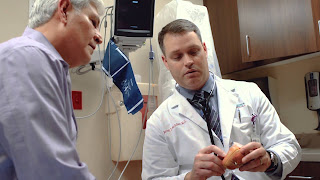Before Choosing a Cardiology Fellowship
In order to be considered for a fellowship of this nature, you’ll first need to complete the requisite years of medical school. These first years will provide a basic level of knowledge in many different areas, as well as give you the first pieces of information that are necessary in order to ensure that you’ll be successful during your fellowship as well as after. As dealing with patients and health care is one of the most important jobs available in today’s society, it is imperative that the training you receive and the education that you complete is meaningful and high quality.
During your time in medical school, you’ll have many different opportunities present themselves to you, as well as giving yourself the chance to decide what your career path will be. Many people choose to become general practitioners or nurses, but it takes a special person to choose to become a cardiologist after pursuing and completing a cardiology fellowship with a reputable institution.
Cardiology Fellowship Basics
A Georgetown cardiology fellowship is only different in the fact that it is located on the East coast of the United States. The program, skills and practices that are taught and learned throughout this experience are similar to those from other institutions; the location and the patients are different. Throughout the duration of this cardiovascular fellowship Washington DC’s setting will bring a lot of unexpected challenges and opportunities for fellows as well as staff members. For more information, visit http://www.medstarhealth.org/education/affiliated-hospitals-2/medstar-georgetown-university-hospital/cardiovascular-disease-fellowship/ to start your decision making process.
This type of fellowship is concerned with care and treatment of the human heart, which is one of the most important organs within the human body. There are different branches of cardiology that can be studied, including coronary care, echocardiography, imaging, consulting cardiography, and even diagnosing, treating, and improving congestive heart failure and transplants. These skills will help individuals become great cardiologists after finishing their extensive training and learning experiences.
A fellowship in cardiology will not always be easy, but it will be worth working hard for. The hours may be long, each day may be difficult, and there is a great deal of information to learn and remember, but when dealing with the heart and the health of expectant patients, the time and effort are truly worth it. In addition to the medical knowledge learned throughout the program, you’ll also make friends, earn the respect of medical colleagues and become familiar with the city you complete your fellowship in - so it is important to pick one that will mesh well with your personality.

No comments:
Post a Comment